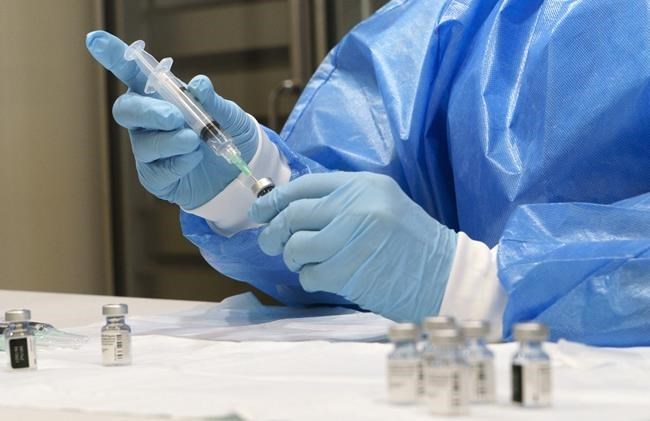TORONTO — Quebec moved to place three cities into lockdown and Ontario weighed stricter public health measures Wednesday as the two provinces hit hardest by the COVID-19 pandemic sought to combat a recent surge in cases.
Quebec Premier Francois Legault announced schools and non-essential businesses will close in Quebec City, Levis and Gatineau for at least 10 days starting Thursday, while the curfew will be moved to 8 p.m. from 9:30 p.m.
"The situation is critical and we have to act quickly," he said, adding he expects hospitalizations to spike in those cities in the coming days.
The announcement comes a day after Legault had warned that tighter pandemic rules could be imposed in five regions where he said people were flouting public health measures.
Four of those regions -- Quebec City, the Outaouais area across the river from Ottawa, Chaudiere-Appalaches and Bas-St-Laurent -- will also be moving to the more stringent "red" pandemic alert level from the "orange" level.
The Quebec premier said he is not ruling out additional restrictions in other regions should the situation there worsen in the near future.
Legault said he has also been in talks with the Ontario government regarding the decision to tighten restrictions, particularly in light of the close connection between Gatineau and Ottawa.
Ontario Premier Doug Ford is poised to announce Thursday whether any new measures will be put in place to rein in the spread of the virus.
Ford said Wednesday he is "very, very concerned" by the recent increase in infections seen in the province.
Ontario reported 2,333 new COVID-19 cases and 15 more deaths on Wednesday, as well as a new high for the number of patients in intensive care units.
Canada's top public health doctor, Theresa Tam, said while vaccine coverage is increasing across Canada and immunization programs are gaining momentum, the recent surge in infections and growing proportion of cases involving more contagious variants of the virus show "strong public health measures and individual precautions must be sustained where COVID-19 is circulating."
She stressed that abiding by public health practices remains important even for those who have received a COVID-19 vaccine, noting more information is needed on the shots' ability to prevent transmission.
More people in British Columbia were able to schedule appointments to receive an Oxford-AstraZeneca vaccine Wednesday as bookings opened up to Lower Mainland residents between the ages of 55 and 65.
The response has been "overwhelming," the pharmacy chain London Drugs said Wednesday, adding bookings at its three designated sites had been filled.
The province decided to bump up its age-based immunization plan for AstraZeneca shots after the National Advisory Committee on Immunization opted to pause the use of that vaccine for anyone under 55 due to concerns over rare blood clots.
The move prompted several provinces to announce they would stop administering the vaccine to those under 55.
Out east, many doses initially earmarked for New Brunswick teachers were redistributed Wednesday to residents over the age of 55 in light of the committee's decision.
New Brunswick Premier Blaine Higgs was among the 200 or so people offered a vaccine at a clinic in Fredericton.
In Manitoba, the province's Vaccine Implementation Task Force said its current supply of COVID-19 vaccines will run out in a week, noting there are concerns about delays in future shipments.
The task force said Wednesday a shipment of 28,000 Moderna vaccines has been pushed back at least a week. The province is expecting 40,000 doses of the Pfizer-BioNTech vaccine per week and 50,000 doses of the AstraZeneca vaccine next week.
Meanwhile, Pfizer Canada said it will be asking Health Canada to broaden the authorization for the use of its COVID-19 vaccine to include children 12 to 15 years old.
The Pfizer shot is currently approved for those as young as 16, but initial clinical trials didn't include younger adolescents.
On Wednesday, the drugmaker released preliminary data from a U.S. followup study involving 2,260 kids between 12 and 15, saying none of the children who got the vaccine developed a COVID-19 infection. In comparison, there were 18 infections among those given a placebo, the company said.
Officials across the country continued to urge caution regarding the upcoming Easter holiday, entreating residents to refrain from gathering with anyone outside their household and to limit non-essential travel.
This report by The Canadian Press was first published March 31, 2021.
Paola Loriggio, The Canadian Press




